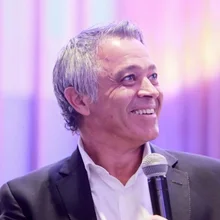
FX Markets Best Banks Awards 2020: Best bank for regional/domestic banks – Standard Bank

Despite unprecedented volatility brought on by the Covid‑19 pandemic, Standard Bank managed to consistently make prices in African FX markets by nurturing a culture of constant evolution from within, while building on traditional skills and experiences

At the height of volatility sparked by the onset of the Covid‑19 pandemic, Standard Bank often found itself one of a handful of liquidity providers that continued to consistently make prices for the South African FX market.
“We saw some providers step away from price-making in the first part of the crisis,” says Richard de Roos, global head of FX at Standard Bank. “We found that the traditional banks, particularly ourselves and one or two international banks, were the key principal market-makers for quite a long period of time.”
The reason for this is, at the peak of the crisis, market-makers had to hold positions for a lot longer than what would be deemed necessary under normal market conditions, de Roos says. And, as holding times became longer, some providers – including banks and non-banks – rapidly lost their appetite for risk and withdrew from the market.
“The nature of fragmented markets is that we have to hold on to liquidity for much longer periods of time,” says de Roos, “so for a business with a set of rules that forces them to cut positions after certain hold times, this naturally decreases their ability to stay relevant to that market.”
As the withdrawal of some liquidity providers exacerbated already delicate liquidity conditions in the South African market at the time, the role of liquidity providers such as Standard Bank was critical to the functioning of the local market.
“Traditional players with high internalisation and bigger balance sheets were on the receiving end of a significant portion of the flow,” de Roos emphasises. “Standard Bank made prices throughout the crisis – as it has always done.”
“On the flipside, there was increased appetite for liquidity from those non-traditional players because we were there consistently,” says Mpumelelo Makhubu, lead for digital trading solutions at Standard Bank. “But, as a market-maker, we found the top providers for us were the more traditional bank liquidity providers with the larger balance sheets, rather than non-banks and some non-disclosed liquidity providers on electronic communications networks.”
Elsewhere on the African continent, liquidity squeezes were more acute in the oil-dependent economies of Nigeria and Angola as petroleum prices were falling. There, Standard Bank had to work with central banks, donor agencies and remittance flows to source liquidity. In the more mature East African frontier markets of Kenya and Uganda, liquidity was not as impacted by market volatility, as those markets’ FX activity is more correlated to transactional and real-money flows than fast money.
Driving change through digital solutions

While much of Standard Bank’s attention was focused on the storm that was brewing, the bank nevertheless made progress in its drive to develop a comprehensive set of digital solutions for its FX franchise. The task is made more complex because its client base across Africa is varied, and the bank has to cater to a wide range of needs. But this development is nonetheless important if the bank wishes to extend its FX franchise and keep up with clients’ needs.
In some countries the ability to internalise orders and form prices with a local pricing engine is all that is needed. But, for the more advanced markets, the bank has begun to introduce data analytics and algorithms to its technology offering.
“We’ve built a full stack of technology that is best-of-breed for our lowest common denominator, but we must also be able to reach the highest common denominator to be active in the global markets,” says de Roos.
While enthusiastic about the prospects of algos for its client base, de Roos points out that these cannot be mere replicas of those used elsewhere and, as such, the algo suite being developed by Standard Bank – and the liquidity behind it – reflects the nuances of the markets on the continent. While demand for algos is increasing, the uptake remains disparate across the bank’s client base.
As it seeks to differentiate its offering, the bank is conscious that its technology stack must remain modular and add value to its client base in a proportionate manner. But pandemic-induced volatility also provided a timely reminder that at the core it is the skills of its FX team that allowed the bank to navigate the rapidly changing trading environment.
“The crisis has vindicated the work our teams have done until now. Driving change in the business will continue, but we must also maintain traditional skills and experiences. We need to make sure we don’t throw the baby out with the bathwater,” concludes de Roos.
Sponsored content
Copyright Infopro Digital Limited. All rights reserved.
As outlined in our terms and conditions, https://www.infopro-digital.com/terms-and-conditions/subscriptions/ (point 2.4), printing is limited to a single copy.
If you would like to purchase additional rights please email info@fx-markets.com
Copyright Infopro Digital Limited. All rights reserved.
You may share this content using our article tools. As outlined in our terms and conditions, https://www.infopro-digital.com/terms-and-conditions/subscriptions/ (clause 2.4), an Authorised User may only make one copy of the materials for their own personal use. You must also comply with the restrictions in clause 2.5.
If you would like to purchase additional rights please email info@fx-markets.com